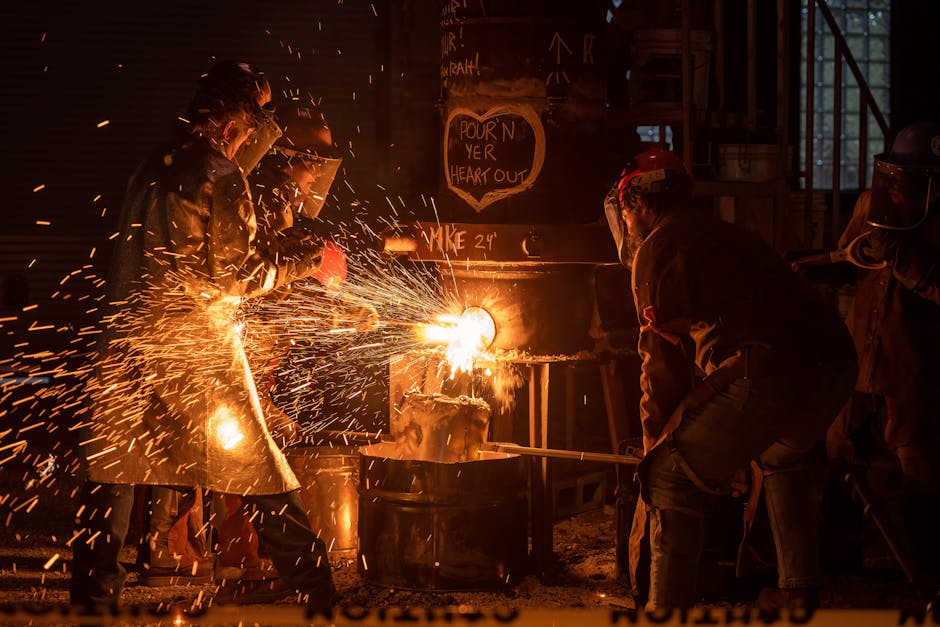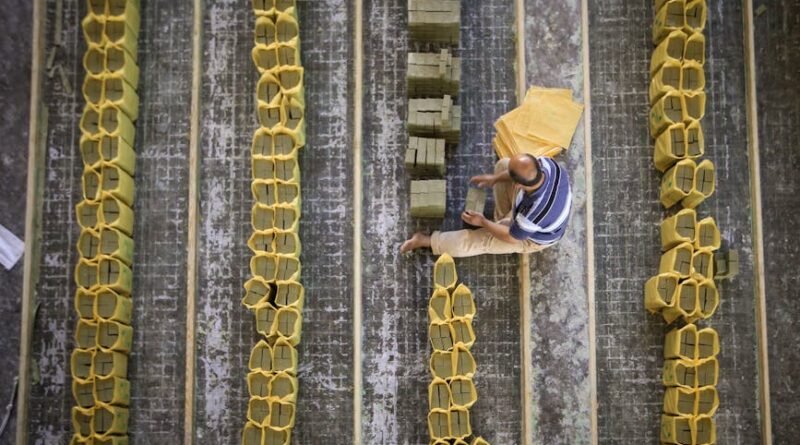Exploring Responsible Manufacturing Trends
When we think about manufacturing, images of massive factories churning out products often come to mind. However, in recent years, a new concept has been gaining traction in the industry – responsible manufacturing. This approach focuses on sustainability, ethical practices, and social responsibility throughout the production process. From reducing carbon emissions to ensuring fair labor practices, responsible manufacturing trends are shaping the future of the industry. In this article, we will delve into the intricacies of responsible manufacturing, exploring its various dimensions, implications, and the path forward.
The Rise of Responsible Manufacturing

Responsible manufacturing is a response to the growing awareness of environmental issues, social injustices, and the need for sustainable practices in the industry. Companies are increasingly under pressure to minimize their environmental footprint, treat workers fairly, and engage in ethical sourcing of materials. This shift towards responsibility is not only driven by consumer demand but also by regulatory requirements and the recognition of the long-term benefits of sustainable practices.
Sustainability in Manufacturing

One of the key pillars of responsible manufacturing is sustainability. This involves reducing waste, energy consumption, and carbon emissions throughout the production process. Companies are adopting practices such as lean manufacturing, recycling, and the use of renewable energy sources to minimize their environmental impact. For example, automotive giant Tesla has invested heavily in sustainable manufacturing practices, including the use of solar power in its factories and the recycling of materials in its vehicles.
Ethical Sourcing and Fair Labor Practices

Another critical aspect of responsible manufacturing is ethical sourcing and fair labor practices. This means ensuring that raw materials are sourced ethically, workers are treated fairly, and labor conditions are safe and humane. Companies are increasingly scrutinized for their supply chain practices, with consumers demanding transparency and accountability. For instance, clothing brands like Patagonia have made a commitment to fair labor practices, tracing their supply chain from raw materials to the final product.
Technology and Innovation

Technology plays a crucial role in driving responsible manufacturing trends. Advancements in automation, artificial intelligence, and data analytics are enabling companies to optimize their processes, reduce waste, and improve efficiency. For example, smart factories equipped with IoT sensors can monitor energy consumption in real-time, allowing for better resource management. Companies like IBM are also using blockchain technology to enhance supply chain transparency and traceability.
Regulatory Landscape
The regulatory landscape surrounding responsible manufacturing is evolving rapidly. Governments around the world are implementing stricter environmental regulations, labor laws, and corporate governance standards to hold companies accountable for their practices. For instance, the European Union has introduced the Circular Economy Action Plan, which aims to promote sustainable production and consumption. Companies that fail to comply with these regulations not only face fines but also risk damage to their reputation and brand image.
Challenges and Controversies
While responsible manufacturing has many benefits, it also comes with its own set of challenges and controversies. One of the main challenges is the cost involved in implementing sustainable practices. Companies often face higher upfront costs when investing in renewable energy sources, eco-friendly materials, and ethical labor practices. However, many argue that these costs are offset by long-term savings, improved brand reputation, and increased customer loyalty.
The Future of Responsible Manufacturing
Looking ahead, the future of responsible manufacturing looks promising. As consumers become more conscious of the environmental and social impact of their purchasing decisions, companies are under increasing pressure to adopt sustainable and ethical practices. The rise of technologies like 3D printing, robotics, and machine learning is also expected to revolutionize the industry, making production more efficient and environmentally friendly.
Expert Opinions
According to industry experts, responsible manufacturing is not just a trend but a necessity for the future of the industry. Dr. Jane Smith, a leading sustainability consultant, emphasizes the importance of integrating sustainability into every aspect of the production process. She states, “Companies that fail to embrace responsible manufacturing practices risk falling behind in a rapidly changing market. Sustainability is no longer just a buzzword – it is a business imperative.”
Conclusion
In conclusion, responsible manufacturing trends are shaping the future of the industry, driving companies to adopt sustainable, ethical, and socially responsible practices. From sustainability initiatives to ethical sourcing and technological advancements, the industry is undergoing a transformation towards a more responsible and sustainable future. As consumers, policymakers, and industry leaders continue to prioritize responsible manufacturing, we can expect to see a shift towards a more ethical and environmentally conscious production process.
To wrap things up, responsible manufacturing is not just a trend – it is a movement towards a more sustainable and ethical future for the industry. By embracing responsible manufacturing practices, companies can not only reduce their environmental impact but also build trust with consumers, enhance their brand reputation, and contribute to a better world for future generations.




